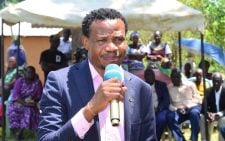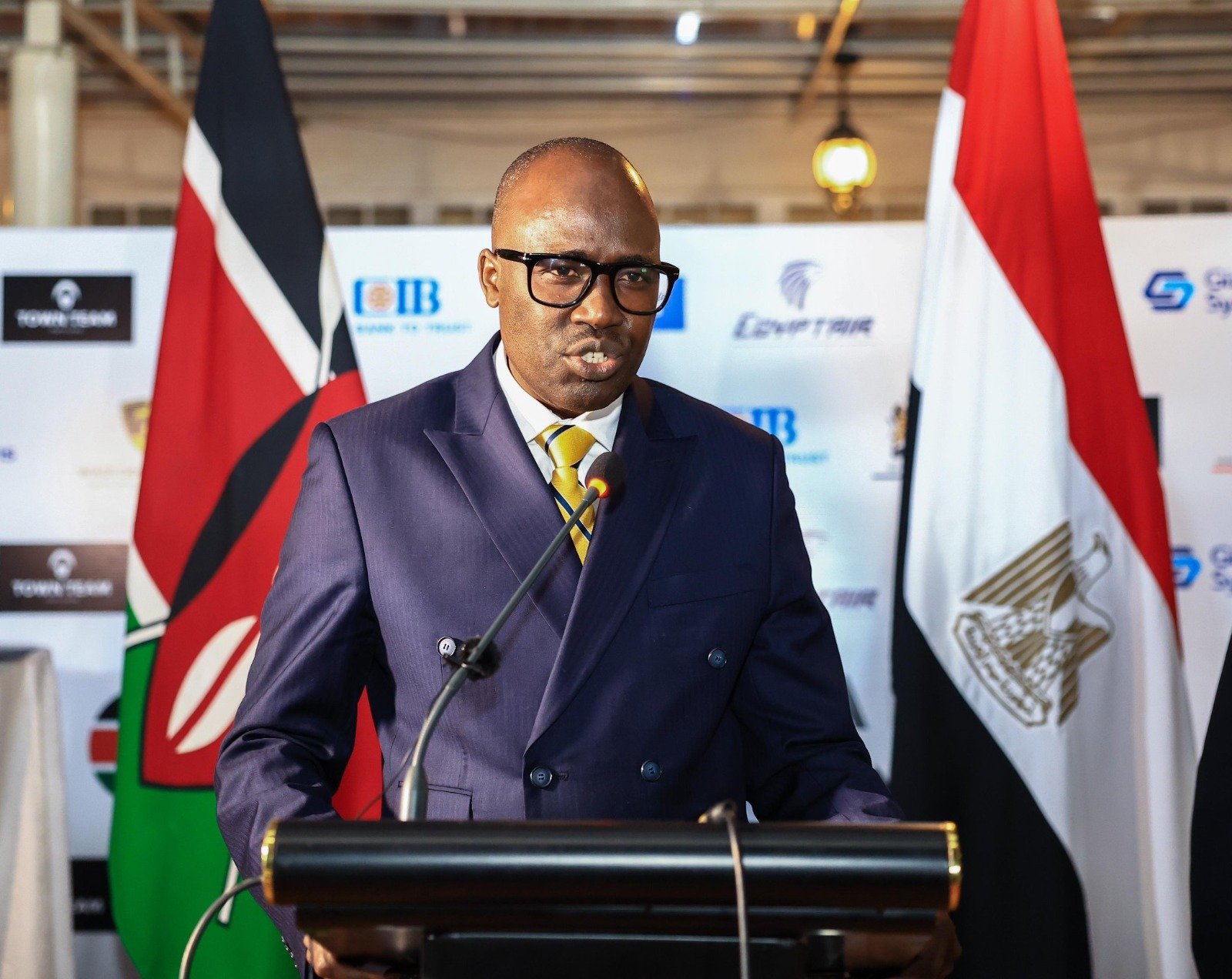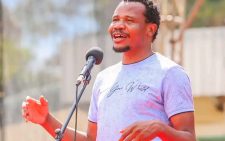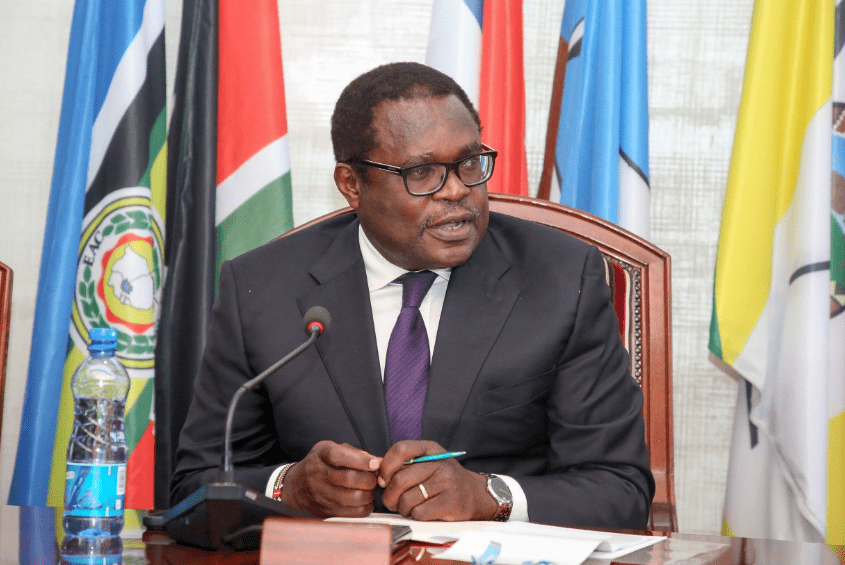Lovebirds soar over race
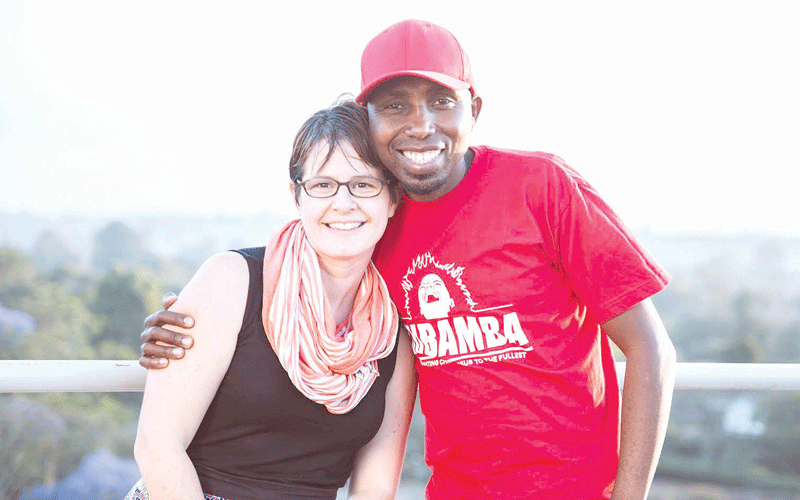
The first 10 years in any marriage are probably the most overrated, disappointing and drastically life changing. It is a time to you figure each other out and discover your partner’s weaknesses and strengths.
It’s been 11 years since top Christian DJ, Moses Kimathi Mathenge aka DJ Moz, said ‘I do’ to his Scottish wife, Deborah Kimathi.
The two met at an event where he was contracted as a DJ in 2005. She was working on a missionary project and did not know that their friendship would three years later, blossom into marriage. Deborah says her husband like her loves people and fun.
He is a God-fearing man, who despite the tumults of married life, has remained faithful to the relationship .
“I remember people saying the first three years of marriage are usually the most difficult. We hit three years, then they said the same about the next seven years, and 11 years down the line, we are stronger,” says Deborah.
Challenges
Before having their first daughter, Zara in 2011, the two lovebirds had a series of miscarriages, an emotionally issue that they had to deal with.
“A miscarriage is like taboo. I remember when it happened and I shared about it, I found other women who had also gone through the same experience.
You feel at that point that you are the only person going through it, but statistics show that one in four pregnancies end in miscarriage. Talking to others definitely helps in the healing process,” recalls Deborah.
They admit, however, that they didn’t go through counselling, but healed through the support of friends and family. Also, praying together, they say helped them get over the difficult period.
In the course of the pregnancy of their firstborn, DJ Moz lost his father and a close friend’s mother. In these tragedies, he found solace in prayer and Deborah was shoulder to lean on.
Durng the birth of their children, Deborah says DJ Moz stayed by her side in the delivery room.
“We had a deal when I was pregnant that Moz would see me through to the very end of the pregnancy, which meant being in the delivery room. He had no option, but to be there,” she laughs.
For DJ Moz, it was a special moment seeing his babies delivered, although he admits it was tough watching his wife bring them out to the world. The couple has three children, Zara, Alba and Baraka.
Deborah says two months after having Zara, DJ Moz shaved his dreadlocks out of his own volition.
Deborah describes him as a hands-on dad, adding that fatherhood has helped him understand God’s love. “Having a child tests one’s patience and develops character. You get to value discipline,” she says.
Late in 2014, DJ Moz lost his elder sister on the same morning his daughter was admitted in the hospital with a chest infection. This was a difficult moment in their marriage. Just six months later, Deborah lost her mum and this hit them hard.
Naming their children
Their children’s names have a cultural meaning. For instance, their first born’s name is Zara, which means radiant flower and her middle name is Wangari, her grandmother.
“It was important for us that each child represented the family heritage. We always knew that we were going to follow the traditions of both cultures and that we would choose the first name and then follow tradition.
Alba’s name not only means place of strength, but it’s also the Gaelic word for Scotland. Her middle name is Joan after Deborah’s grandmother.
And Baraka means blessings and his middle name is Mathenge after DJ Moz’s dad,” she explains
Celebrity life
Deborah says she is not bothered by the attention that her husband gets at events, especially from the female fans. She says DJ Moz has always been a people person and that has not affected their marriage except when they out and he has to keep stopping for a banter with fans.
“So you send Moz to buy something from the supermarket and it takes an hour because he has to stop to say hallo to everybody he meets along the way, some seeking for advice and take selfies.
You just get used to it and keep walking and do what needs to be done,” says Deborah.
Work and marriage
Four months after their wedding, in 2009, Moz got the opportunity to take his Kubamba show on TV. The period was tough for Deborah who had the challenge of adjusting to a new church while Moz had to get his new job going.
“My church was like my home and family and although it was work for him, I felt like he’d left me alone to adjust to the new place,” she confesses.
This got harder when the children came and she had to juggle going with them to church. As she recalls, each Sunday of the four years when her children were young comprised sitting in the crèche or nursing mothers corner taking care of the children while the sermon went on.
Being there meant that she couldn’t meet up with the adults in the church.
“During that period, I wasn’t getting much from church, but she taught her children how to learn the word of God.
We did eventually move to a smaller church where we would be more engaged with younger children. By that time, she had already adapted handling her children when they went to church,” she says
In 2017, while Kubamba radio was launched, Deborah was in the middle of changing jobs.
This taught her the essense of supporting each in such major transitions. For example, they had to make time in the evenings after work for family to catch up.



